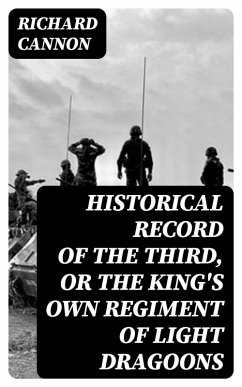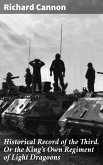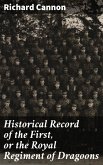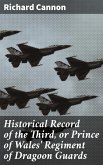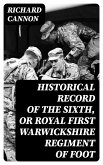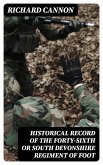Richard Cannon's 'Historical Record of the Third, Or the King's Own Regiment of Light Dragoons' stands as a meticulous chronicle of military history, providing an exhaustive account of one of the British Army's most esteemed regiments from its inception in 1685 to the year 1846. Offering more than a mere log of battles and leadership, Cannon weaves an intricate narrative that captures the evolution of military tactics, the shifting landscapes of war, and the undying spirit of the regiment. His literary style marries the precision of a historian with the flair of a storyteller, resulting in a work of historical literature that speaks to the enduring nature of military tradition within the broader literary context of 19th-century historical documentation. This special edition by DigiCat Publishing, reproduced with fidelity to its original prose, ensures that the legacy of this significant military account sustains its reach to contemporary readership. The esteemed historian, Richard Cannon, plied his commitment to diligently recording military history with this work, driven perhaps by an unyielding respect for the disciplined valor and strategic intellect of military life. His historical method reflects both an admiration for and a profound understanding of the British Army's identity and operational nuances. It is likely that Cannon's own proximity to military circles, fueled by either direct experience or scholarly pursuit, informed his meticulous commitment to preserving the regiment's storied past. His treatment of the source material transcends that of mere archivist; Cannon's dedication to detail echoes the precision and honor embodied by the regiment he chronicles. Cannon's opus is recommended to military enthusiasts, historians, and those with a predilection for classic literature alike. It positions itself as an essential work for those who seek to understand not only the historical significance of military regiments but also their cultural and societal impact. This republished edition by DigiCat rejuvenates interest in a cornerstone of military literature, offering the assurance that new generations can access and appreciate the tireless service and celebrated legacy of the King's Own Regiment of Light Dragoons through Cannon's unparalleled scholarship.
Dieser Download kann aus rechtlichen Gründen nur mit Rechnungsadresse in A, B, BG, CY, CZ, D, DK, EW, E, FIN, F, GR, H, IRL, I, LT, L, LR, M, NL, PL, P, R, S, SLO, SK ausgeliefert werden.

